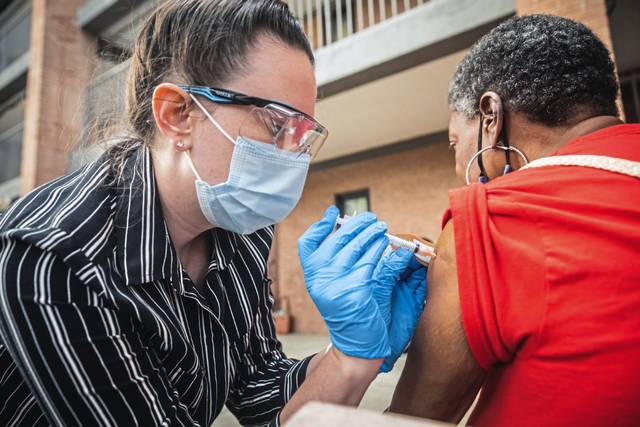According to Book of Ecclesiastes — and made popular by The Byrds by way of Pete Seeger — there is a time and a season for everything.
A time to be born and a time to die, a time to plant and a time to harvest. A time to build and a time to tear down. A time to laugh and a time to cry.
In 2020, there has been much time devoted to outrage, infighting, protest, anger, mourning, hate and suffering.
What we could all use is a little more bridge-building. More stitching together of what has been torn apart.
It is past time for us to focus on a time to heal.
Duquesne University is joining hands with the Housing Authority of the City of Pittsburgh and Live Well Allegheny on that, offering much-needed health care services to areas of the community that were at a medical disadvantage even before covid-19.
“Because of the pandemic, some individuals are forgoing needed health care, which can lead to serious complications down the road,” said Dr. Jennifer Elliott, director of the university’s Center for Integrative Health and associate professor of pharmacy practice.
The effort provides diabetes and cardiovascular screenings and management programs at all HACP locations. That’s 10 high-rise apartment buildings and five family communities. In other words, that brings a lifeline directly into the backyard of thousands of Pittsburghers.
It couldn’t happen at a better time.
People with diabetes and cardiovascular conditions are among those who are at the greatest risk in the coronavirus pandemic. Identifying those with a diagnosis that could pose a danger is important. Helping them manage those conditions to minimize the risk is critical anytime. When an infectious disease is targeting them, it is more so.
The outreach doesn’t stop there.
It extends to flu shots and asthma clinics in school districts. There are computer labs that might seem more educational and less medicinal, but health care and maintenance is happening via virtual visits and apps helping document things like blood sugar readings and heart rates — especially amid social distancing.
“We had many patients who had never received a flu vaccine before for multiple reasons, cost being one of them. So, we were able to provide vaccinations for the first time for lots of residents. And we follow up with our patients and really try to provide that connection to care,” Elliot said.
It isn’t just about extending that care to those who can’t afford it. It also aims to bridge a divide between those who get care and don’t that can be racial.
What it is time for is real healing — an attempt to fix what is broken and offer help where it is needed. This is a good way to get there.








